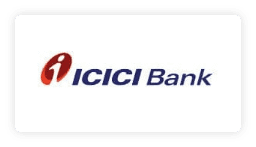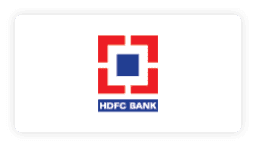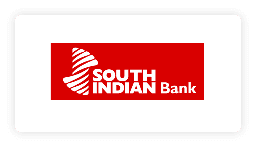
About MBA Programme
This novel experiential 1 year MBA Programme from Jindal Global Business School, O.P Jindal Global University is designed to prepare the next generation of managers and business executives. The curriculum is designed and delivered by top faculty at the School through recorded lectures and regular live sessions on cases and applications.

MBA Degree from the prestigious Jindal Global Business School, O.P. Jindal Global University (JGU), internationally ranked and nationally recognized as an Institution of Eminence

Acquire the skills needed to jumpstart your career and make your candidature suitable for jobs of the future

Become a JGU alumnus and take advantage of continued engagement and networking with the world of academia, policy and industry

4 terms - 18 credits each - 13 weeks per term - Each term having 4 courses of 3 credits each and one experiential learning course/action learning project of 6 credits. First 3 terms to be of core courses and last term will be specialisation. All courses in a term to be opened up/run parallely. Along with the recorded content, each course will have 6 hours of live sessions

7 relevant and in-demand specialisation options to choose from - Finance, Digital Finance, Marketing, Strategy & Leadership, Human Resource Management , Digital Supply Chain & Operations Managament, & AI for Business. All learners will get an additional certificate for specialisation completed. Learners also have the option to choose a combination courses from across specialisations and graduate with a general MBA

Learners will be awared an MBA degree with an
additional certificate mentioning the
specialization
being given


Experiential Learning courses will include independent research project work,
presentations,
report writing and Capstone Simulation

Eligibility Criteria
Candidates must hold a graduation degree in any discipline from a recognized University.
Candidates with >50% score in graduation will be exempted from the JMAT exam.
Candidates with less than 50% score in graduation will need to take a 30-minute JMAT Online National Level entrance exam. The link to the test is sent after candidates submit their application.
Students who have scored qualifying marks in entrance exams given below any time in the last 3 years are exempted from appearing for JMAT CAT/XAT/MAT/GMAT/GRE/ATMA ≥ 50 Percentile | GRE ≥ 295 | GMAT ≥ 450 | CMAT/NMAT ≥ 160
4 terms - 18 credits each - 13 weeks per term - Each term having 4 courses of 3 credits each and one experiential learning course/action learning project of 6 credits.
| Sr No. | Subject | Credits | Description |
|---|---|---|---|
| 1 | The Firm and the Consumer | 3 | Apply microeconomic theory to real-world phenomenon and use appropriate
models to explain outcomes. Compare and contrast market structures based on competition levels |
| 2 | Global Economics | 3 | Develop simple models to make predictions about the behavior of
macroeconomic variables like inflation and exchange rate. Interpret current and past macroeconomic developments. |
| 3 | Business Statistics | 3 | Explain concepts like sampling, probability, and central limit theorem,
along with their applications. Use techniques like hypothesis testing and statistical inference for making decisions |
| 4 | Organizational Behaviour | 3 | Understand ways to develop discretionary behaviour and enhance employee
engagement. Apply critical organizational behavioral aspects with regards to culture, leadership, conflict, and change management. |
| Experiential Learning | Business Communication | 6 | |
| Total Credits | 18 |
| Sr No. | Subject | Credits | Description |
|---|---|---|---|
| 1 | Analysis of Financial Statement | 3 | Analyse income statements, balance sheets and statements of cash flow.
Compare and contrast the way financial statements are crafted for digital banking and for traditional companies. |
| 2 | Operations Management | 3 | Analyse business operations using performance measures such as flow
time, throughput rate, and capacity. Implement quality control activities, and perform demand forecasting and inventory management for various industries. |
| 3 | People Management | 3 | Understand the basic HRM processes used across organisations. Design HRM processes like recruitment, selection, training and development, and performance appraisals. |
| 4 | Emerging Technology: Impact on Future of Business | 3 | Explore the mechanics and details of Fintech/ Blockchain, Artificial
Intelligence, and the Internet of Things. Examine the current global and Indian regulations governing the aforementioned technologies. |
| Experiential Learning | Independent Research Project-I | 6 | |
| Total Credits | 18 |
| Sr No. | Subject | Credits | Description |
|---|---|---|---|
| 1 | Marketing Management | 3 | Learn to think critically about marketing principles like designing,
delivering and communicating value for successful marketing
management. Undertake research and communicate ideas effectively in written and verbal presentations. |
| 2 | Financial Management and Valuation | 3 | Estimate the value of financial instruments such as stocks, bonds,
options, and capital projects. Describe the process, motives, and implications of mergers and acquisitions. |
| 3 | Capital Markets and Instrument | 3 | Analyse models for portfolio selection and understand asset pricing
theories. Learn about the derivatives markets including futures and options. |
| 4 | Business Ethics & Corporate Social Responsibility | 3 | Analyse how businesses sensitise themselves and cater to the diversities
of the Indian population in terms of structure, goals, and ethos.
Critically analyse business issues from different philosophical lens of ethical theories and their impact on ethical decision-making. |
| Experiential Learning | Independent Research Project-II | 6 | |
| Total Credits | 18 |
| Sr No. | Subject | Credits | Description |
|---|---|---|---|
| 2 | Specialisation Courses in Term 4 | 12 | Each of the 4 specialisation options have 4 courses each. Learners who
decide to do a General MBA can pick 4 courses from the specialisation
courses. Details of the specialisation courses have been shared below. |
| Experiential Learning | Capstone | 6 | |
| Total Credits | 18 |
Financial Modelling and Data Visualization
Project Finance
Behavioural Finance
Principles of Financial Regulation
Introduction to Digital Finance
Managing Fintech Ecosystems
Blockchain and Cryptocurrency
Financial Analytics
Consumer Behaviour
Services Marketing
Design Thinking
Artificial Intelligence
Strategic Management
International Business
Entrepreneurship & New Venture Creation
Leadership Essentials for Business
Operations Research
Supply Chain Management
Project Management Analytics
Service Operations Management
Performance Management
Talent Management
Compensation and Benefits
Employee Wellbeing
Generative AI
Natural Language Processing
Visual Analytics
Introduction to ML
Programme Fee ( For Indian )
Total Fees : Rs. 1.75 lakhs Rs. 1,80,000 (inclusive of all taxes) [No Cost EMI Available]



















Dr. Anirban Ganguly
Professor and Vice Dean (Research)
B.Sc; MBA (University of Calcutta);
M.S., Ph.D. (Stevens Institute of
Technology)
aganguly@jgu.edu.in

Dr. Sonam Chawla
Assistant Professor & Assistant Dean
B.Com (University of Delhi);
PGDM (FORE School of Management, New
Delhi);
FPM (MDI Gurgaon)
sonam@jgu.edu.in

Dr. Sarveshwar Kumar Inani
Associate Professor
M.B.A. (Rajasthan
Technical University);
FPM (IIM Lucknow)
skinani@jgu.edu.in

Dr. Anirban Ganguly
Professor and Vice Dean (Research)
B.Sc; MBA (University of Calcutta);
M.S., Ph.D. (Stevens Institute of
Technology)
aganguly@jgu.edu.in

Dr. Sonam Chawla
Assistant Professor & Assistant Dean
B.Com (University of Delhi);
PGDM (FORE School of Management, New
Delhi);
FPM (MDI Gurgaon)
sonam@jgu.edu.in

Dr. Sarveshwar Kumar Inani
Associate Professor
M.B.A. (Rajasthan
Technical University);
FPM (IIM Lucknow)
skinani@jgu.edu.in
Freshers and working professionals who are looking for a transition into managerial and leadership roles, taking up larger responsibilities within their organization, making impactful decisions with the right management tools taught in an MBA.
- Candidates must hold a graduation degree in any discipline with minimum 50% aggregate score from a recognized University.
- Candidates will need to give the 30-minute JMAT Online National Level entrance exam. The link to the test is sent after candidates submit their application. Students who have scored qualifying marks in other exams as given below any time in the last 3 years are exempted from appearing for JMAT. CAT/XAT/MAT/ATMA ≥ 50 Percentile | GRE ≥ 295 | GMAT ≥ 450 | CMAT/NMAT ≥ 160
The admissions process is completely online. Candidates must hold a graduation degree in any discipline with minimum 50% aggregate score from a recognized University to be eligible to apply. The following are the key steps in the application process:
Step 1 - Fill out the MBA application form
Step 2 - Candidates will need to check their eligibility as per below criteria and give the 30-minute JMAT online national level entrance exam. The link to the test is sent after candidates submit their application. Students who have scored qualifying marks in other exams as given below any time in the last 3 years are exempted from appearing for JMAT. CAT/XAT/MAT/GMAT/GRE/ATMA ≥ 50 Percentile | GRE ≥ 295 | GMAT ≥ 450 | CMAT/NMAT ≥ 160
Step 3 - Block your seat and Complete the Payment
Step 4 - Complete document verification by uploading required educational and work-ex documents
Post successful completion of this programme, you will get a MBA degree and an additional specialisation certificate from Jindal Global Business School,O.P.Jindal Global University. Learners who are pursuing a general MBA will not be provided a specialisation certificate.